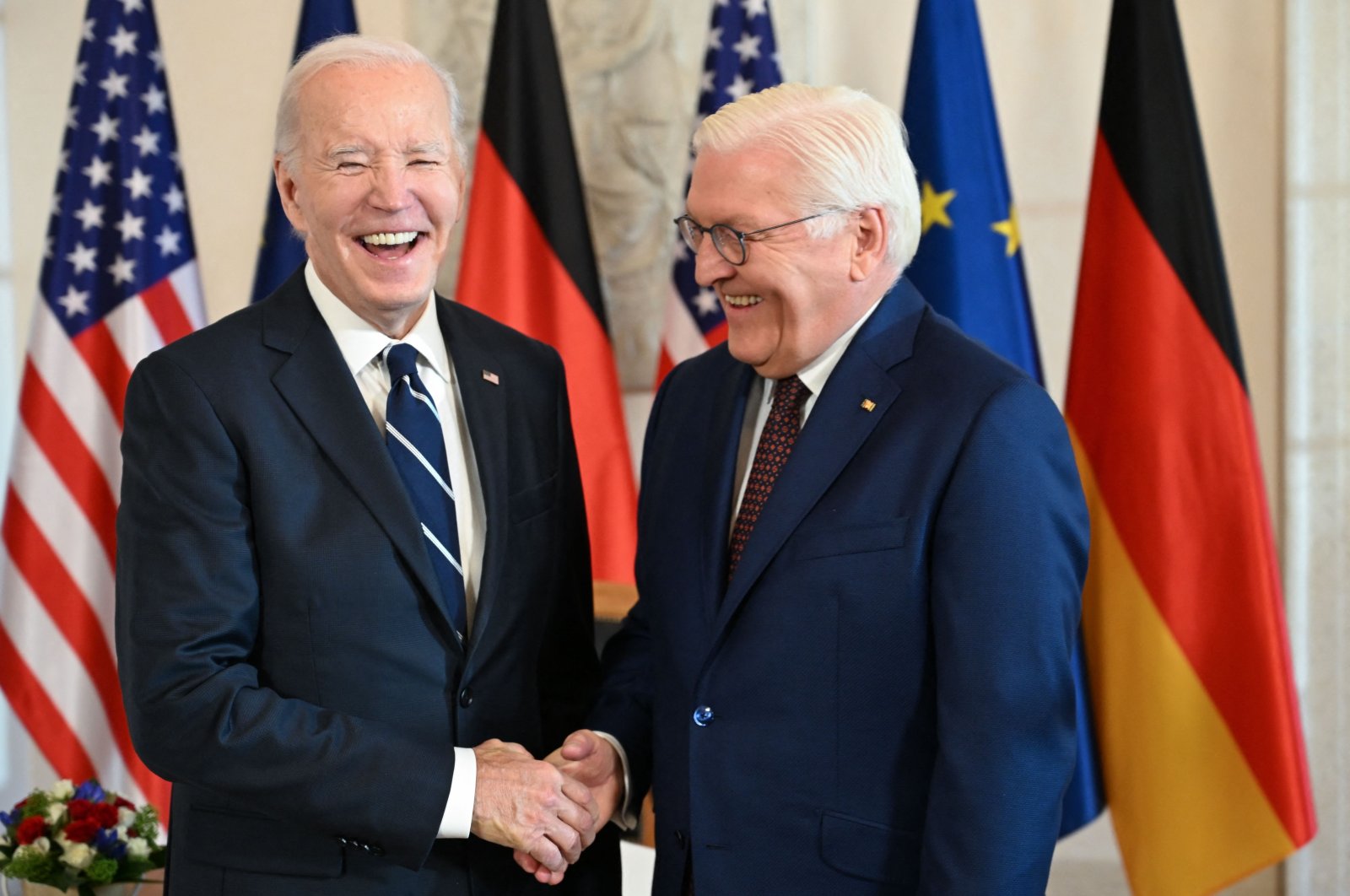
In Germany, President Joe Biden finds it difficult to escape the looming presence of Donald Trump as he engages in crucial discussions with European allies regarding Russia's war in Ukraine and ongoing Middle Eastern conflicts.
With the U.S. presidential election approaching and the race tightening, there are growing concerns that a Trump victory could jeopardize the alliances Biden seeks to solidify for Vice President Kamala Harris, the Democratic nominee.
Biden's conversations come in light of remarks from Israeli opposition leader Benny Gantz, who indicated that Israeli military operations in Gaza could extend for years.
In response to Gantz’s assertion, White House National Security Adviser Jake Sullivan emphasized the U.S. commitment to ensuring Israel fully withdraws from Gaza, despite Gantz's comments.
On Air Force One en route to Berlin, Sullivan clarified that the Biden administration does not aim to "Trump-proof" U.S. foreign policy but seeks to establish long-term commitments to Ukraine.
"What the president is trying to do is make our commitment to Ukraine sustainable and institutionalized," Sullivan said, reiterating a collective responsibility agreed upon by allies.
While Biden can outline his vision for America’s role in global affairs, Sullivan noted that he cannot predict the actions of a potential Trump administration.
Trump has asserted that his leadership would have prevented Russia's invasion of Ukraine and Hamas' attack on Israel, promising to end conflicts and restore U.S. dominance abroad.
Back home, Biden and Trump have clashed over misinformation related to federal disaster relief, with Biden condemning such tactics as "un-American."
Vice President Harris, meanwhile, continues to express strong support for Ukraine and emphasizes the need for humanitarian assistance for Palestinian civilians affected by the conflict.
As Biden approaches his meetings in Berlin, he recalls previous skepticism from foreign leaders about America's renewed engagement: "They say, ‘We see America is back but for how long?’”
To reaffirm U.S. commitment, Biden will meet with German President Frank-Walter Steinmeier and later receive Germany’s Order of Merit, an honor previously given to former President George H.W. Bush.
In discussions with German Chancellor Olaf Scholz, Biden aims to address strategies regarding Ukraine, the situation in Gaza, and broader geopolitical concerns, including relations with Iran and China, as well as developments in artificial intelligence and renewable energy.
Despite the significance of his visit, Biden has opted not to hold a press conference, a decision Sullivan defended, dismissing claims that it reflects a lack of commitment to democratic values.
"Honestly, invoking democracy and suggesting that President Biden is somehow insufficiently committed to it because of the structure of his press engagement is a bit ludicrous,” Sullivan said.
